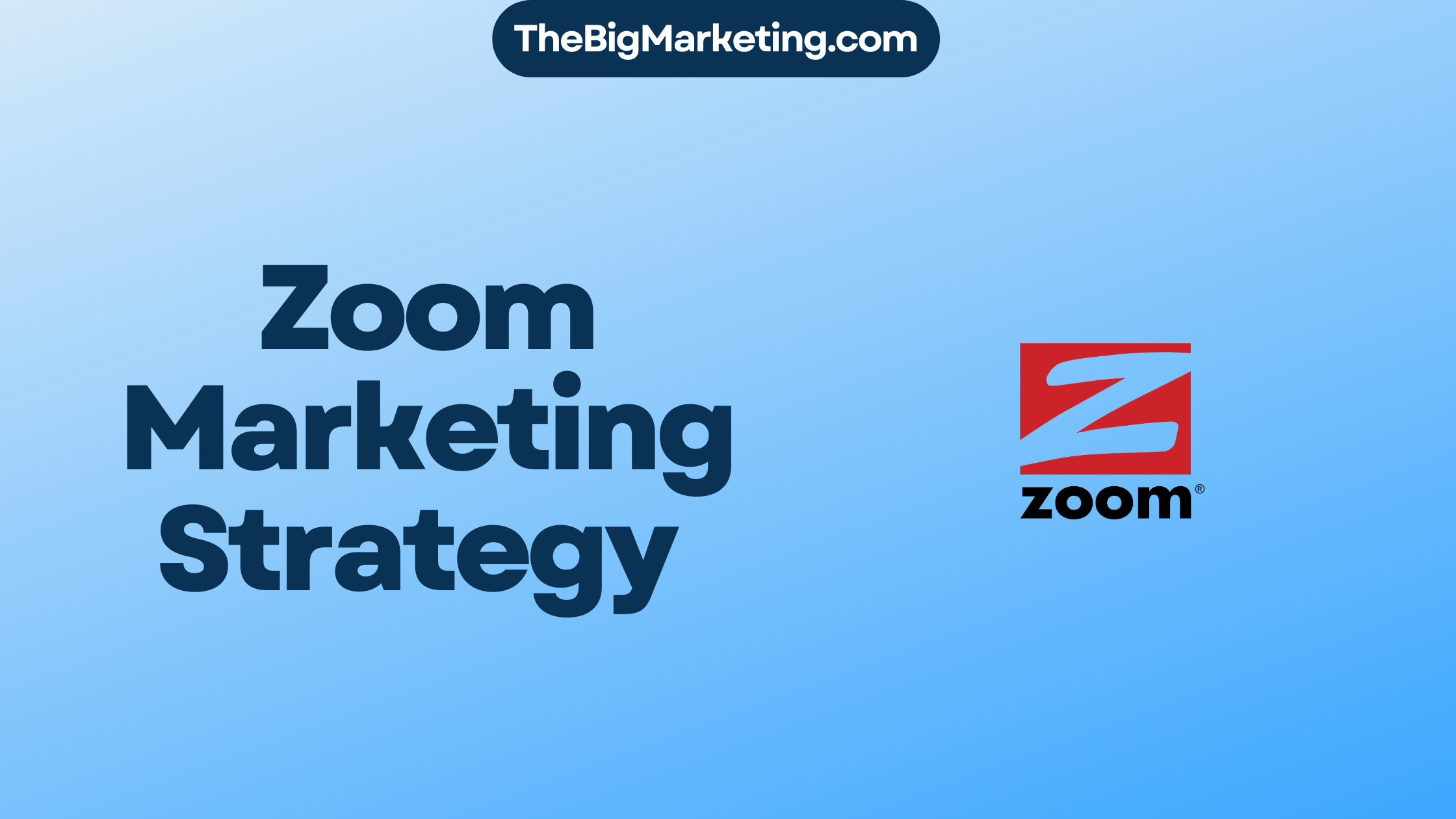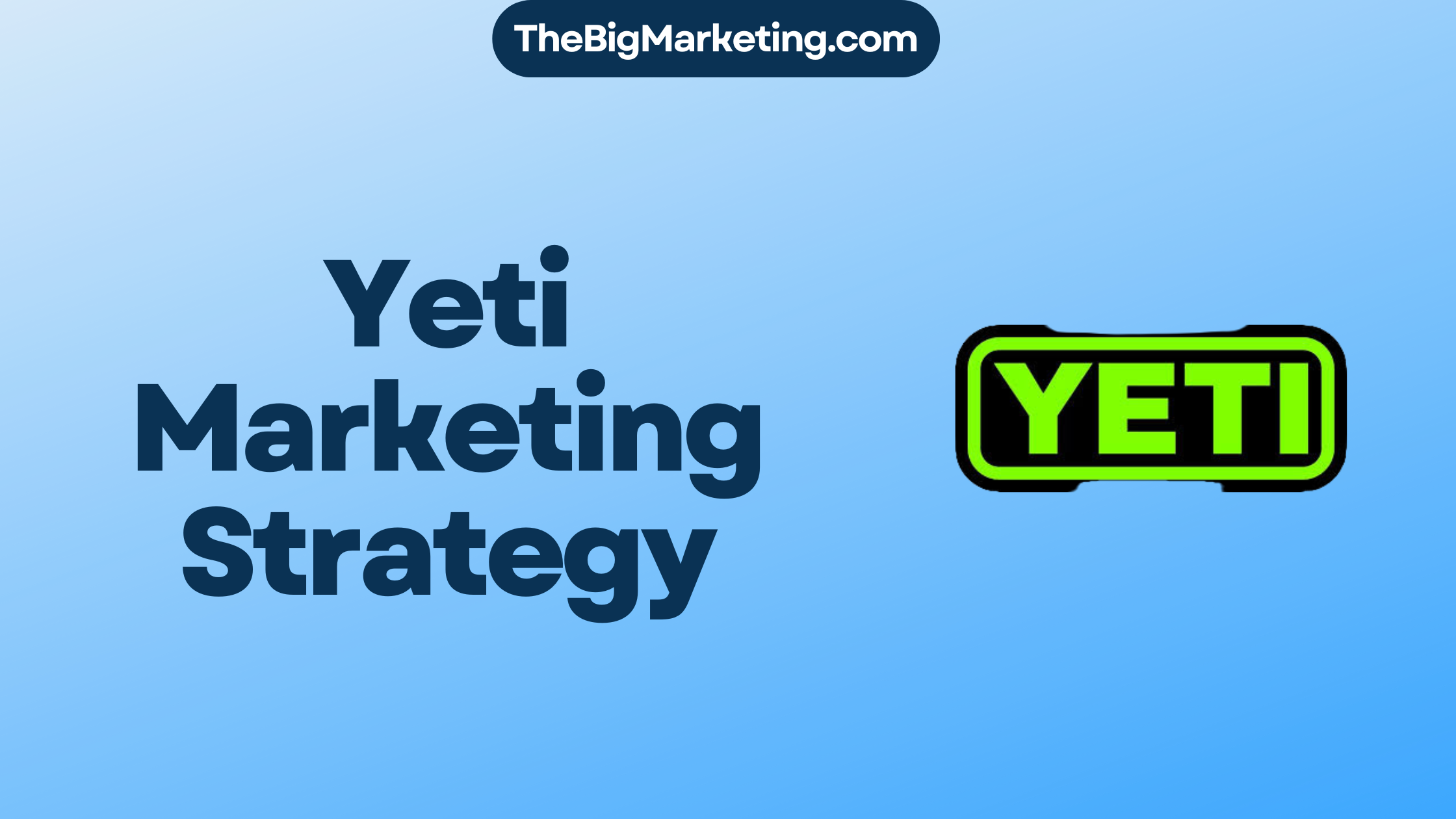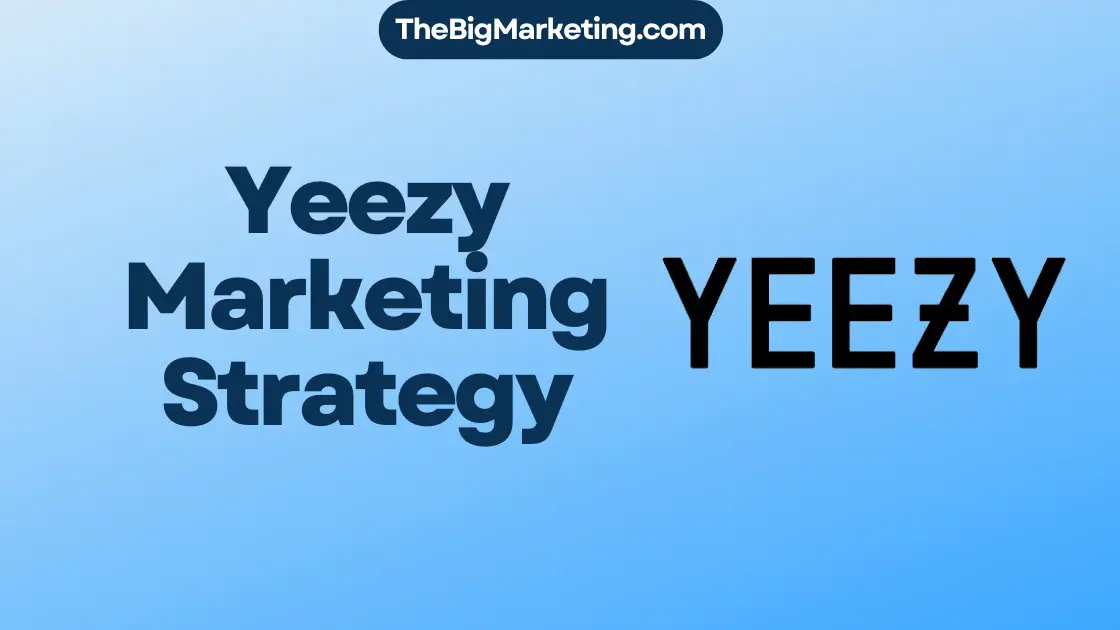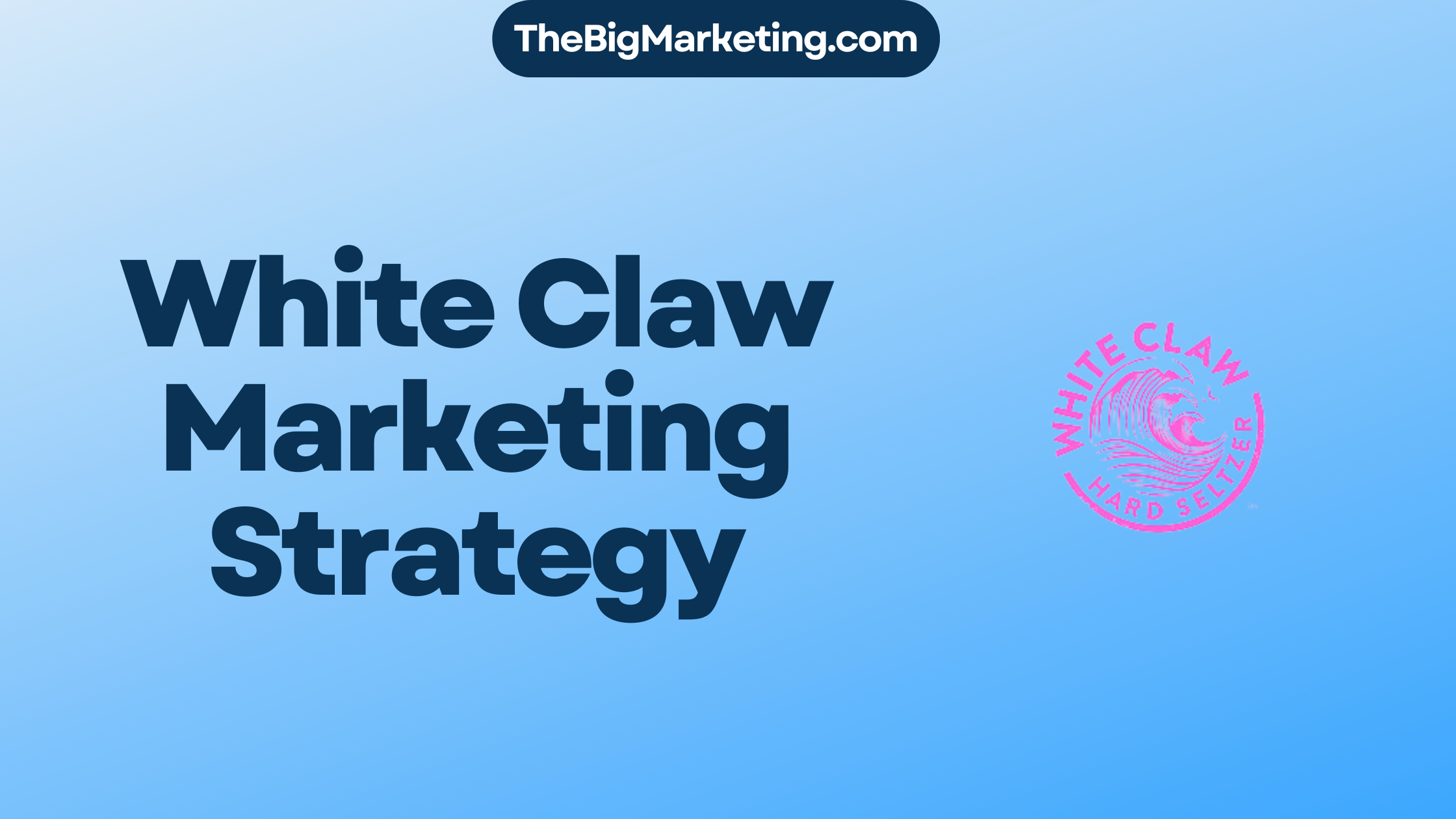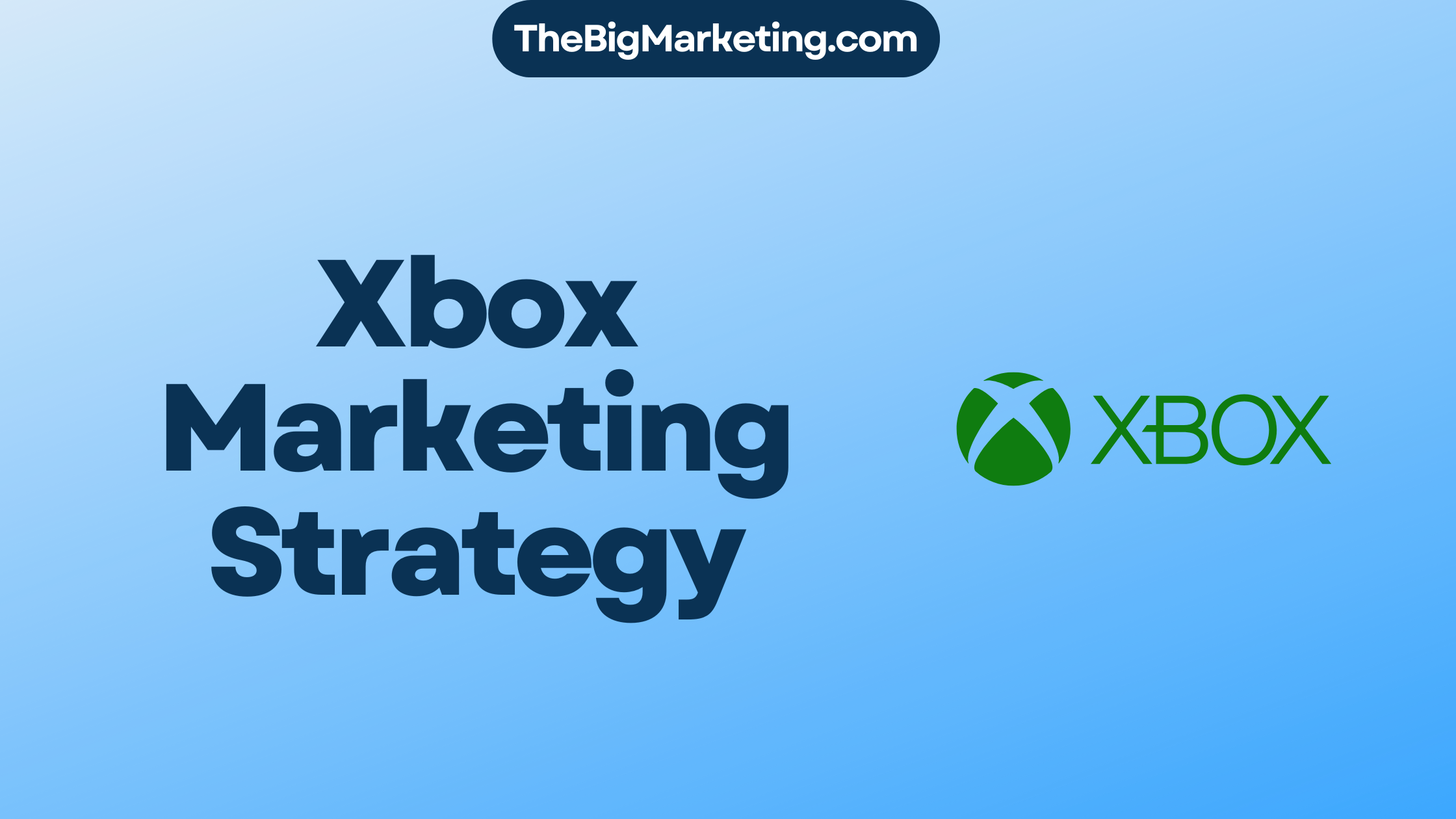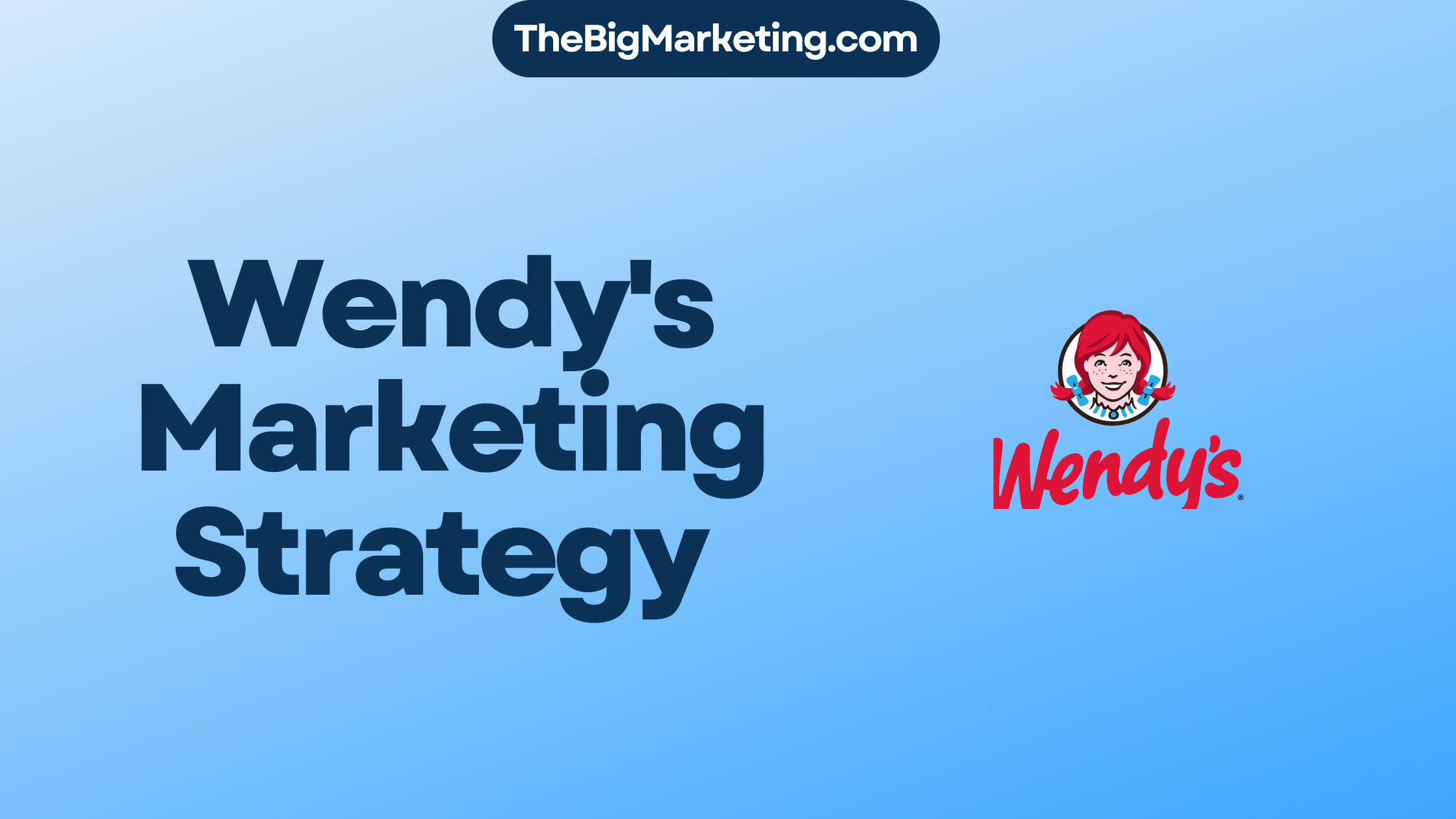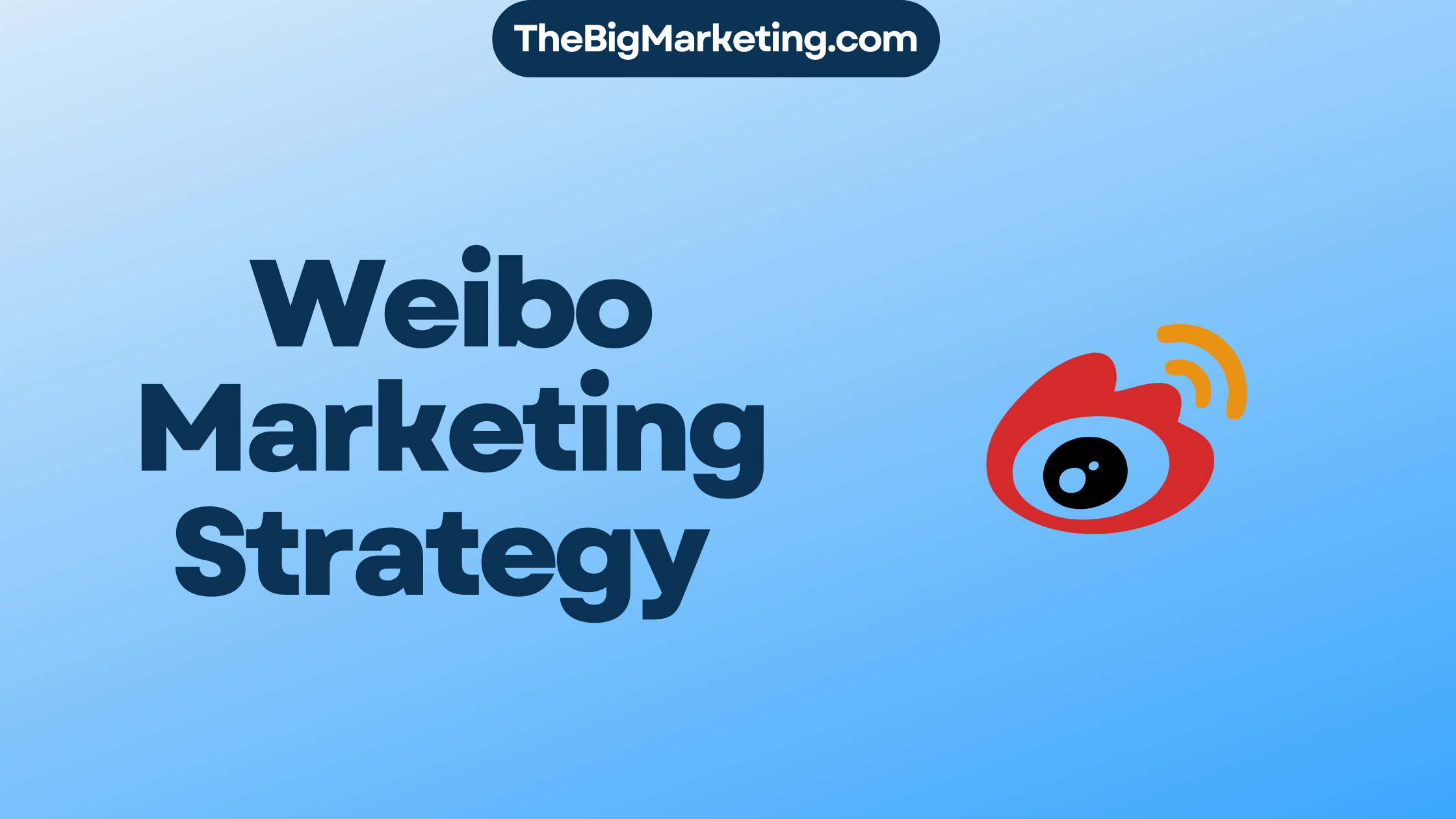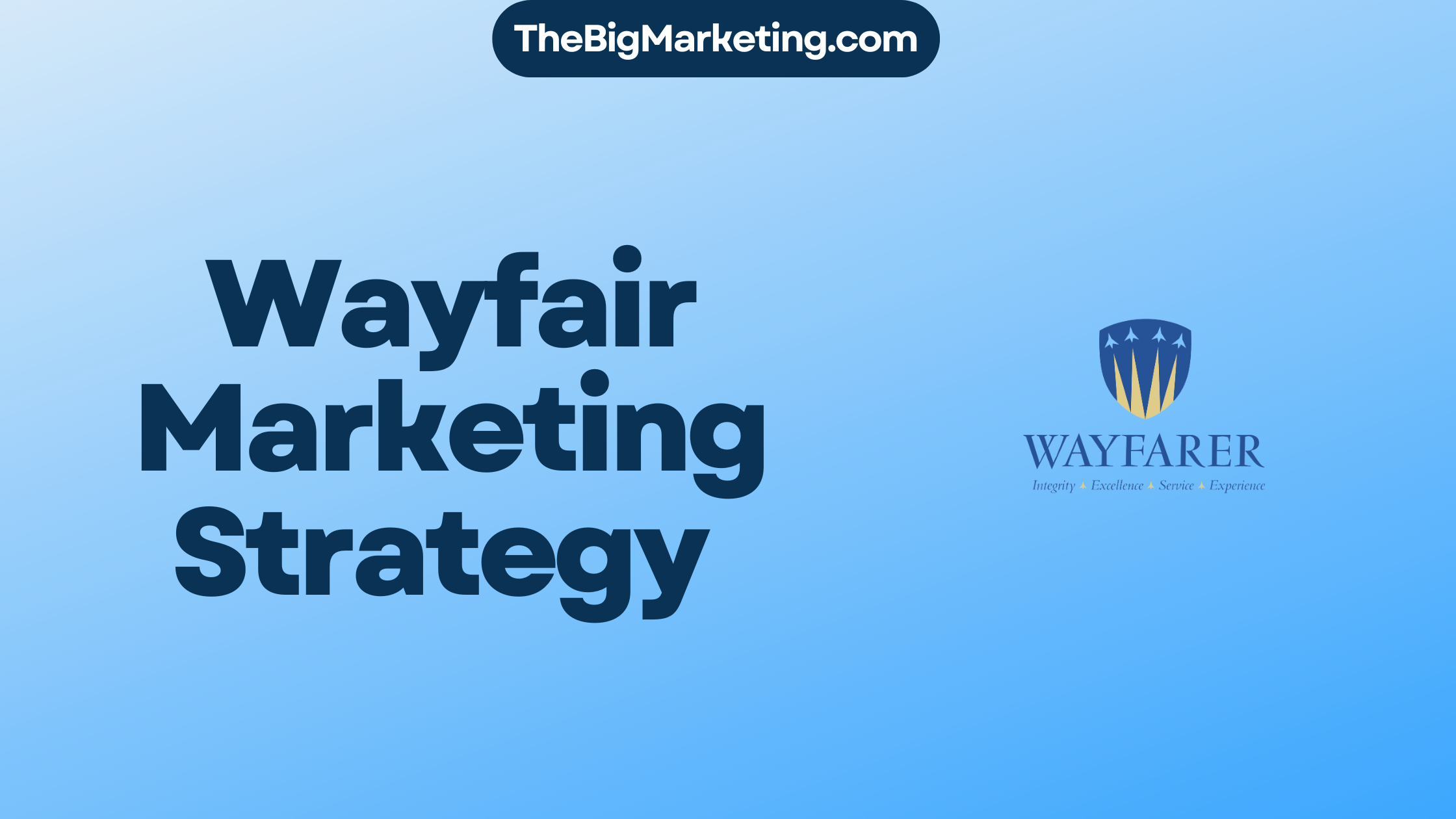A marketing cloud is a powerful tool that can revolutionize your digital marketing efforts and help you achieve greater success. With marketing automation, advanced analytics, and a comprehensive suite of marketing tools, a marketing cloud provides the technology and resources you need to optimize your marketing campaigns and drive meaningful results.
As a cloud-based marketing platform, a marketing cloud allows you to access and manage your marketing activities from anywhere, at any time. By harnessing the power of cloud computing, you can streamline your marketing processes, collaborate more effectively with your team, and leverage advanced data analysis to make data-driven decisions.
Leading vendors such as Salesforce Marketing Cloud, Adobe Marketing Cloud, Oracle CX Marketing Cloud, and SAP Marketing Cloud offer robust marketing cloud solutions that cater to the diverse needs of businesses across industries.
Key Takeaways:
- Marketing clouds provide a comprehensive suite of marketing tools and resources.
- They enable marketing automation, advanced analytics, and data-driven decision-making.
- Cloud-based marketing platforms offer flexibility, accessibility, and collaboration.
- Leading vendors like Salesforce, Adobe, Oracle, and SAP offer powerful marketing cloud solutions.
- Utilizing a marketing cloud can greatly enhance your marketing campaigns and drive meaningful results.
What is a Marketing Cloud?
A marketing cloud is a cloud-based platform that offers a comprehensive set of marketing tools to support various marketing activities and campaigns. These cloud-based marketing solutions provide marketers with the necessary tools to streamline and automate marketing functions, monitor real-time data, and make data-driven decisions. With a marketing cloud, businesses can leverage a range of marketing tools, including social media management, web personalization, data analysis, content management, and advertising.
Marketing cloud platforms enable marketers to manage and execute marketing campaigns across different channels, such as websites, email, social media, and mobile applications. By centralizing various marketing functions into a single cloud-based platform, businesses can optimize their marketing efforts, enhance customer engagement, and drive better results.
| Benefits of a Marketing Cloud | Features of a Marketing Cloud |
|---|---|
|
|
A marketing cloud empowers businesses to create and execute Targeted marketing campaigns while gaining valuable insights through data analysis. By leveraging marketing automation capabilities, businesses can streamline their marketing activities, automate personalized messages, and improve their overall marketing efficiency. With the ability to monitor real-time data and measure campaign effectiveness, marketers can make informed decisions to optimize their marketing strategies.
As the digital landscape continues to evolve, marketing cloud solutions play a crucial role in helping businesses stay competitive and drive success in their marketing endeavors. By harnessing the power of a marketing cloud, businesses can effectively engage their target audience, drive customer acquisition and retention, and achieve their marketing goals.
The Benefits of a Marketing Cloud
Marketing clouds offer numerous benefits to businesses, leveraging the power of marketing automation and data analysis to drive success. Let’s explore the key advantages of implementing a marketing cloud:
1. Customer Journey Management
Marketing clouds provide robust customer journey management capabilities, allowing businesses to map out and structure customer interactions across multiple channels. By creating personalized, seamless experiences at each touchpoint, businesses can foster stronger relationships with their audience and increase conversion rates.
2. Automation of Processes
With a marketing cloud, businesses can automate repetitive tasks such as audience segmentation and data extraction, freeing up valuable time and resources. This automation streamlines marketing operations, improves efficiency, and enables marketers to focus on strategic initiatives.
3. Enhanced Insights into Customer Behavior
Marketing clouds offer advanced data analysis capabilities, providing businesses with comprehensive insights into customer behavior. By analyzing data from various channels and touchpoints, businesses can gain a deeper understanding of their audience’s preferences, interests, and buying patterns. These insights enable more targeted and personalized marketing campaigns.
4. Targeted Marketing Campaigns
A marketing cloud enables businesses to execute targeted marketing campaigns with precision. By leveraging customer data and segmentation capabilities, businesses can deliver personalized messages to specific segments, effectively engaging their audience and driving higher conversion rates.
5. Personalized Messaging
Marketing clouds facilitate personalized messaging by allowing businesses to create dynamic, customized content tailored to each customer’s preferences and behaviors. This level of personalization enhances the customer experience, strengthens brand loyalty, and increases customer engagement.
6. Comprehensive Analytics for Better Decision-Making
Data analysis is a critical component of marketing success, and marketing clouds provide businesses with comprehensive analytics tools. These analytics enable marketers to measure the effectiveness of their campaigns, identify areas for improvement, and make data-driven decisions that align with their strategic objectives.
Overall, marketing clouds empower businesses to optimize their marketing efforts, engage with customers more effectively, and achieve better ROI. By leveraging marketing automation, customer journey management, email marketing, social media marketing, and data analysis capabilities, businesses can unlock the full potential of a marketing cloud and drive their digital marketing strategies to new heights.
| Benefits of Marketing Cloud | Explanation |
|---|---|
| Customer Journey Management | Marketing clouds enable businesses to structure and optimize customer journeys across multiple channels, enhancing the overall customer experience. |
| Automation of Processes | Marketing clouds automate repetitive tasks, freeing up time and resources for marketers to focus on strategic initiatives. |
| Enhanced Insights | Marketing clouds provide detailed data analysis, offering businesses valuable insights into customer behavior and preferences. |
| Targeted Marketing Campaigns | Marketing clouds empower businesses to execute highly targeted campaigns, increasing conversion rates and driving better results. |
| Personalized Messaging | With marketing clouds, businesses can create personalized messages based on customer preferences, boosting customer engagement and loyalty. |
| Comprehensive Analytics | Marketing clouds offer robust analytics capabilities, enabling businesses to make data-driven decisions and optimize their marketing strategies. |
Salesforce Marketing Cloud: A Closer Look
Salesforce Marketing Cloud is a leading digital marketing platform that empowers businesses to effectively manage their marketing activities. With its comprehensive suite of tools, Salesforce Marketing Cloud enables seamless customer journey management, email marketing, mobile marketing, social media marketing, and analytics.
One of the standout features of Salesforce Marketing Cloud is the Journey Builder, which allows businesses to create personalized campaigns that cater to each customer’s unique needs and preferences. By mapping out the customer journey, marketers can deliver targeted messaging at every touchpoint, ensuring a more engaging and relevant experience for their audience.
Another powerful tool offered by Salesforce Marketing Cloud is the Social Studio. With this platform, businesses can manage and monitor their social media presence, schedule posts, engage with their audience, and gain valuable insights to optimize their social media marketing strategies.
Email marketing is a crucial aspect of any digital marketing strategy, and Salesforce Marketing Cloud’s Email Studio provides marketers with the necessary tools to create and send impactful email campaigns. From designing visually appealing templates to segmenting contacts and automating email workflows, Email Studio streamlines the email marketing process and helps businesses maximize their email engagement.
In addition to its robust capabilities in customer journey management, email marketing, and social media management, Salesforce Marketing Cloud also offers strong support for mobile marketing. The Mobile Studio feature allows businesses to engage with customers through SMS and push notifications, delivering targeted messages directly to their mobile devices.
Furthermore, Salesforce Marketing Cloud provides advanced analytics capabilities, enabling businesses to gain valuable insights into their marketing efforts. With comprehensive data analysis, marketers can measure campaign performance, track customer behavior, and make data-driven decisions to optimize their marketing strategies.
Overall, Salesforce Marketing Cloud is a powerful digital marketing platform that offers a wide range of tools and features to drive success in today’s competitive landscape. With its ability to manage customer journeys, execute impactful email and mobile marketing campaigns, harness the power of social media, and analyze data for continuous improvement, Salesforce Marketing Cloud empowers businesses to achieve their marketing goals and deliver exceptional customer experiences.
Differentiating Pardot and Marketing Cloud
When it comes to marketing automation platforms, Pardot and Marketing Cloud are two popular choices. While they may share similarities, it’s important to understand their key differences. Pardot is primarily designed as a B2B platform with a strong focus on email marketing, whereas Marketing Cloud offers a comprehensive suite of tools that cater to both B2B and B2C sectors with a wider range of marketing functions and communication channels.
Let’s take a closer look at the distinctions between Pardot and Marketing Cloud:
Pardot:
- Targeted towards B2B companies
- Specializes in email marketing automation
- Offers lead nurturing and scoring capabilities
- Provides robust CRM integration
- Includes features for tracking website visitor activities
Marketing Cloud:
- Serves both B2B and B2C sectors
- Offers a comprehensive suite of marketing tools
- Provides automation for email marketing, mobile marketing, social media marketing, and more
- Includes advanced features for customer journey management
- Employs data-driven analytics for personalized marketing campaigns
While Pardot excels in B2B email marketing automation, Marketing Cloud provides a broader set of capabilities that span multiple channels and sectors. Businesses looking to focus solely on B2B marketing with a strong emphasis on email campaigns may find Pardot to be a more suitable choice. On the other hand, companies aiming for a more comprehensive marketing automation platform with a wider array of functionalities should consider Marketing Cloud.
| Pardot | Marketing Cloud |
|---|---|
| B2B platform | B2B and B2C platform |
| Email marketing automation | Email, mobile, and social media marketing automation |
| Lead nurturing and scoring | Advanced customer journey management |
| CRM integration | Comprehensive suite of marketing tools |
Ultimately, the choice between Pardot and Marketing Cloud will depend on your specific business needs and marketing objectives. Evaluate your requirements, consider the range of features, and select the platform that aligns best with your goals and target audience.
Uses of a Marketing Cloud
A marketing cloud is a powerful tool that offers various functionalities for businesses to enhance their marketing efforts. Here are some key uses of a marketing cloud:
1. Structuring Customer Journeys
A marketing cloud enables businesses to create and manage customer journeys across multiple channels. By mapping out the touchpoints and interactions with customers, marketers can deliver personalized and relevant messaging at each stage of the journey, improving customer experience and increasing conversion rates.
2. Automating Messages
With a marketing cloud, businesses can automate messages based on customer actions and behaviors. This allows for timely and targeted communication, ensuring that customers receive the right message at the right time. Automated messages can include personalized emails, SMS notifications, and push notifications, among others.
3. Facilitating Smooth Workflows
A marketing cloud streamlines marketing processes and facilitates smooth workflows. It provides a centralized platform where marketers can manage various marketing activities, collaborate with team members, and track the progress of campaigns. This improves efficiency and ensures consistent branding and messaging across different channels.
4. Gaining In-Depth Insights through Data Analysis
Data analysis is a crucial aspect of marketing. A marketing cloud offers robust analytics capabilities that allow businesses to gain in-depth insights into customer behavior, campaign performance, and overall marketing impact. By analyzing key metrics and trends, marketers can make data-driven decisions and optimize their marketing strategies for better results.
5. Creating Targeted Marketing Campaigns
Marketing clouds empower businesses to create targeted marketing campaigns. By leveraging customer data and segmentation tools, marketers can tailor their messaging and offers to specific customer segments, increasing the relevance and impact of their campaigns. This personalization helps to improve customer engagement and drive conversions.
In conclusion, a marketing cloud provides businesses with the tools and capabilities to structure customer journeys, automate messages, facilitate workflows, analyze data, and create targeted marketing campaigns. By harnessing the power of a marketing cloud, businesses can enhance their marketing strategies and drive successful marketing campaigns.
Key Features of Salesforce Marketing Cloud
Salesforce Marketing Cloud, a leading digital marketing platform, offers a comprehensive suite of features to empower businesses in their marketing efforts. Here are some key features that set Salesforce Marketing Cloud apart:
Journey Builder
Journey Builder allows marketers to design and automate personalized customer journeys across multiple channels. With its intuitive interface, marketers can create targeted campaigns and deliver relevant messages at each stage of the customer lifecycle.
Email Studio
Email Studio provides a robust set of tools for creating, managing, and delivering personalized email marketing campaigns. Marketers can leverage its drag-and-drop interface, dynamic content capabilities, and sophisticated automation to engage customers effectively.
Mobile Studio
Mobile Studio enables marketers to engage customers through SMS and push notifications. With features like personalized messaging, opt-in management, and automation, Mobile Studio empowers marketers to reach customers on their preferred mobile channels.
Social Studio
Social Studio helps businesses manage and monitor their social media presence. Marketers can plan and publish social content, engage with customers, analyze social data, and gain valuable insights to optimize their social media strategies.
Advertising Studio
Advertising Studio allows marketers to create and manage targeted online advertising campaigns across various digital channels. Using customer data and segmentation capabilities, marketers can deliver personalized ads to the right audience, driving better results.
Data Studio
Data Studio provides marketers with powerful data management and analytics capabilities. Marketers can consolidate and analyze customer data from multiple sources, derive actionable insights, and make data-driven decisions to optimize their marketing strategies.
With these key features, Salesforce Marketing Cloud offers a comprehensive solution for businesses to effectively manage their marketing campaigns, engage customers across multiple channels, and drive better results through data-driven insights.
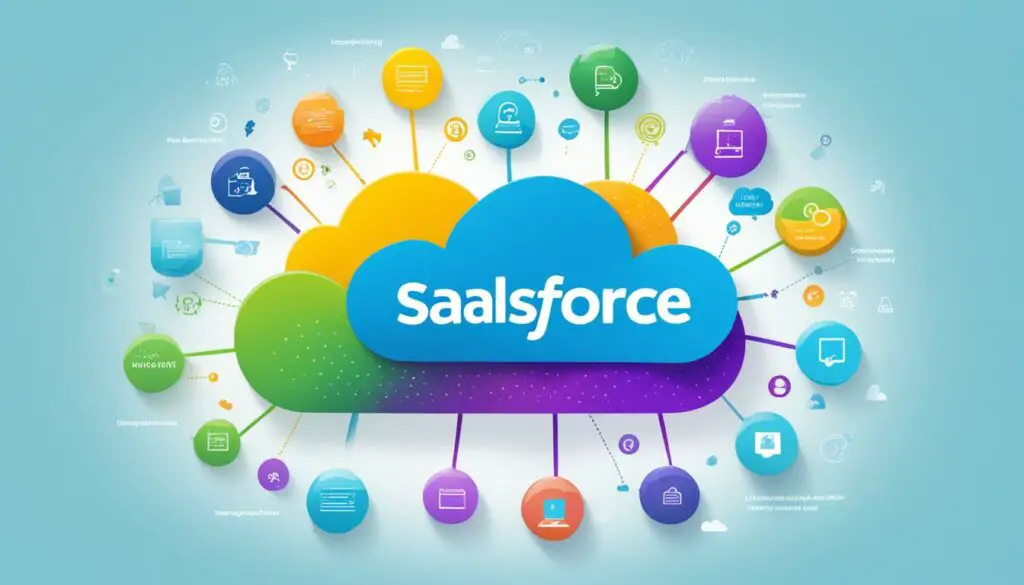
Integrating Salesforce Marketing Cloud
Integrating Salesforce Marketing Cloud with other platforms and tools, such as RingCentral, can greatly enhance marketing automation capabilities. By seamlessly connecting these systems, businesses can streamline their marketing processes and create cohesive multichannel experiences for their customers. This integration enables efficient data sharing, automation of marketing campaigns, and improved sales and revenue generation.
Benefits of Integration
Integrating Salesforce Marketing Cloud with RingCentral provides several key benefits:
- Efficient Workflow: Integration allows for smooth data flow between marketing and communication tools, enabling marketers to easily manage and track customer interactions across channels.
- Automated Communications: Businesses can utilize automation capabilities to send targeted and personalized messages based on customer behavior and preferences.
- Enhanced Customer Experience: Integration enables businesses to create cohesive multichannel experiences, providing a seamless journey for customers from initial engagement to purchase and beyond.
- Improved Sales and Revenue: By leveraging integrated marketing automation, businesses can optimize lead nurturing processes and drive more conversions, ultimately increasing sales and revenue.
Overall, integrating Salesforce Marketing Cloud with RingCentral empowers businesses to leverage the full potential of marketing automation and deliver highly effective marketing campaigns across multiple channels.
| Integration Benefits | Description |
|---|---|
| Efficient Workflow | Seamless data flow between marketing and communication tools |
| Automated Communications | Targeted and personalized messaging based on customer behavior |
| Enhanced Customer Experience | Cohesive multichannel experiences for seamless customer journeys |
| Improved Sales and Revenue | Optimized lead nurturing and increased conversions |
Marketing Cloud Best Practices and Tips
To maximize the potential of a marketing cloud platform, businesses should follow industry best practices and implement effective strategies that drive results. Here are some key tips for leveraging the power of marketing cloud:
1. Define Clear Goals
Before diving into any marketing campaign, it’s crucial to define clear goals and objectives. This will help you align your efforts, track progress, and measure success. Whether your goal is to increase brand awareness, generate leads, or drive conversions, having a clear roadmap will guide your decision-making process.
2. Segment Your Audience
Segmentation is essential for delivering personalized and relevant messages to your target audience. By dividing your customer base into distinct groups based on demographics, behaviors, or preferences, you can tailor your marketing campaigns to meet their specific needs and interests. This targeted approach enhances engagement and improves conversion rates.
3. Personalize Messages
The era of generic mass marketing is long gone. Customers expect personalized experiences, and marketing cloud platforms provide the tools to deliver just that. By leveraging customer data and insights, you can create highly personalized messages that resonate with your audience. Personalization builds trust, increases response rates, and fosters long-term customer relationships.
4. Continuously Monitor and Analyze Data
Data analysis is a vital component of marketing cloud optimization. By regularly monitoring key metrics and analyzing data, you can uncover valuable insights that guide your decision-making process. Identify patterns, trends, and opportunities to refine your marketing strategies and improve campaign performance.
5. Continuously Optimize Your Marketing Campaigns
The digital marketing landscape is ever-evolving, and what worked yesterday may not work today. To stay ahead of the competition, continuously optimize your marketing campaigns. Test different variations, measure results, and make data-driven decisions to improve engagement, conversion rates, and return on investment.
By following these best practices, businesses can harness the full potential of marketing cloud platforms, enhance customer engagement, and drive meaningful results. Implementing these strategies will enable you to stay competitive in the digital age and deliver the personalized experiences that today’s customers demand.
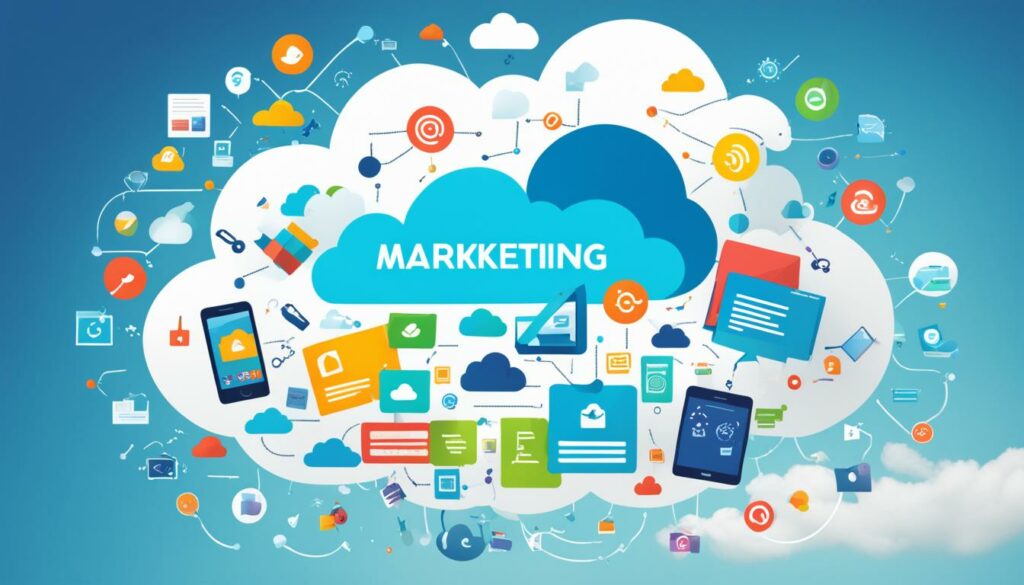
| Benefits of Marketing Cloud Best Practices | |
|---|---|
| Improved campaign performance | Enhanced customer engagement |
| Increased conversion rates | Data-driven decision making |
| Personalized customer experiences | Greater ROI |
Conclusion
Marketing cloud platforms offer a comprehensive solution for businesses looking to enhance their digital marketing efforts. By leveraging the power of automation, multichannel marketing, and analytics, these platforms enable businesses to streamline their marketing activities and achieve better results.
With the ability to manage customer journeys, execute targeted email marketing campaigns, and handle social media management, marketing clouds provide businesses with the tools they need to create personalized and impactful marketing strategies. The integration of analytics also allows for data analysis and insights, helping businesses make informed decisions to optimize their campaigns.
By utilizing a marketing cloud, businesses can automate processes, save time and resources, and improve overall efficiency. The ability to engage customers across multiple channels and deliver personalized messages increases the effectiveness of marketing campaigns and boosts customer engagement.
In the competitive digital landscape, embracing a marketing cloud is essential for businesses seeking to stay ahead. By harnessing the power of digital marketing, automation, multichannel marketing, and analytics, marketing clouds empower businesses to drive growth, enhance customer experiences, and achieve their marketing goals with precision.
FAQ
What is a marketing cloud?
A marketing cloud is a suite of cloud-based marketing tools that allows businesses to manage marketing activities and campaigns across different channels, targeting prospects and clients more effectively.
How does a marketing cloud work?
A marketing cloud is a cloud-based platform that offers a comprehensive set of marketing tools, including social media management, web personalization, data analysis, content management, and advertising. It enables marketers to streamline and automate marketing functions, monitor real-time data, and make informed decisions.
What benefits does a marketing cloud offer?
Marketing clouds offer numerous benefits, including the ability to structure customer journeys across multiple channels, automate processes like segmentation and data extraction, and gain detailed insights into customer behavior. They enable targeted marketing campaigns, personalized messaging, and comprehensive analytics for better decision-making.
What is Salesforce Marketing Cloud?
Salesforce Marketing Cloud is a leading digital marketing platform that offers tools for customer journey management, email marketing, mobile marketing, social media marketing, and analytics. It provides features like Journey Builder for personalized campaigns, Social Studio for social media management, and Email Studio for email marketing.
What are the differences between Pardot and Marketing Cloud?
Pardot is primarily a B2B platform focused on email marketing, while marketing cloud is more comprehensive, targeting both B2B and B2C sectors with a broader range of marketing functions and communication channels.
How are marketing clouds used?
Marketing clouds are used to structure customer journeys across multiple channels, automate messages based on customer actions, facilitate smooth workflows, and gain in-depth insights through data analysis. They enable businesses to create targeted marketing campaigns and track the impact of their marketing activities.
What are the key features of Salesforce Marketing Cloud?
Salesforce Marketing Cloud offers a wide range of features, including Journey Builder for campaign automation, Email Studio for email marketing, Mobile Studio for SMS and push notifications, Social Studio for social media management, Advertising Studio for targeted online advertising, and Data Studio for data management and analytics.
How can Salesforce Marketing Cloud be integrated with other platforms?
Salesforce Marketing Cloud can be integrated with other platforms and tools, such as RingCentral, to enhance marketing automation capabilities. Integration allows businesses to streamline marketing processes, create cohesive multichannel experiences, and improve sales and revenue.
What are some best practices for using a marketing cloud?
To make the most of a marketing cloud platform, businesses should follow best practices like defining clear goals, segmenting their audience, personalizing messages, monitoring data, and continuously optimizing their marketing campaigns. Regular analysis and improvement can lead to better customer engagement and increased ROI.
How can a marketing cloud enhance a business’s digital marketing efforts?
Marketing cloud platforms offer a comprehensive solution for businesses to streamline and automate their digital marketing efforts. With features like customer journey management, email marketing, social media management, and analytics, marketing clouds enable businesses to create personalized, targeted campaigns and enhance their marketing strategies for better results.
